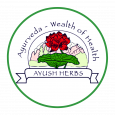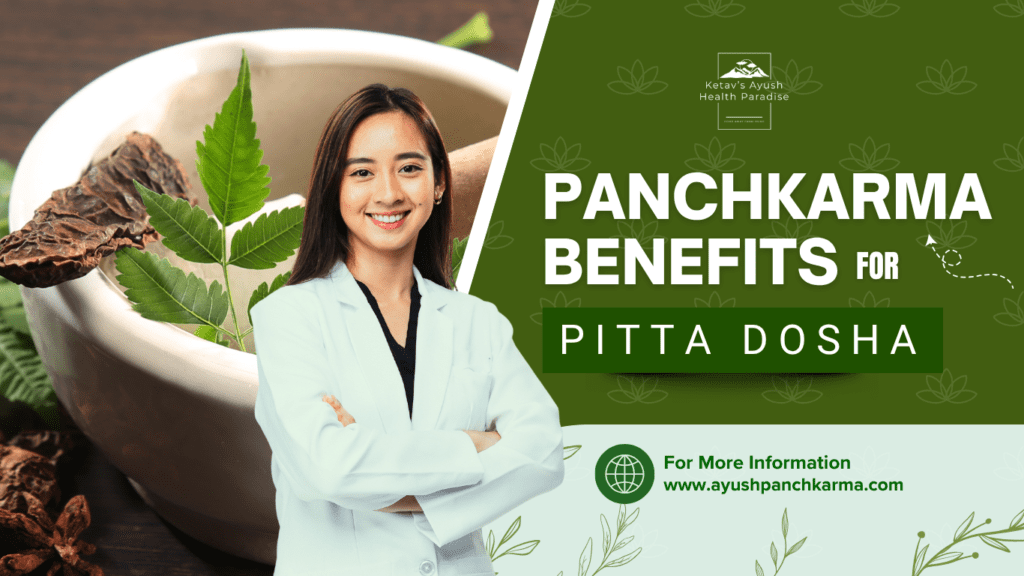In the timeless science of Ayurveda, health is defined as the dynamic equilibrium of three vital energies: Vata, Pitta, and Kapha. Each dosha governs specific bodily and mental functions, and when they’re in harmony, we thrive. But among them, Pitta Dosha—governed by the fire and water elements—can easily become aggravated in today’s fast-paced, high-stress lifestyle.
From fiery tempers and acidity to skin inflammation and burnout, excess Pitta can disrupt both mind and body. The good news? You can restore balance naturally through a Pitta Dosha diet and the deep cleansing process known as Panchakarma. Let’s explore how Ayurvedic principles can help you cool the fire within and reclaim radiant health.
What Is Pitta Dosha? Understanding Your Ayurvedic Constitution
Pitta Dosha governs digestion, metabolism, and transformation—physically and mentally. People with dominant Pitta energy are sharp-minded, ambitious, and driven. They have strong digestion, a warm body temperature, and glowing skin.
However, when Pitta is aggravated—often due to stress, hot weather, spicy food, or irregular routines—it may lead to:
- Acid reflux and heartburn
- Inflammatory skin issues (like acne or rashes)
- Anger, irritability, or impatience
- Ulcers or chronic acidity
- Excessive perfectionism and burnout
Identifying Pitta imbalance is the first step. Consulting with an Ayurvedic practitioner ensures personalized support aligned with your constitution (Prakriti) and current imbalance (Vikriti).
Cooling the Flames: The Pitta Dosha Diet
The key to a balanced Pitta Dosha diet lies in reducing heat and supporting gentle digestion. Foods that are cooling, hydrating, sweet, and bitter help pacify excess Pitta.
✅ Best Foods to Include in a Pitta-Pacifying Diet:
Grains:
✔ Basmati rice, barley, oats, quinoa, wheat
Fruits:
✔ Sweet apples, pears, melons, grapes, mangoes, pomegranates
Vegetables:
✔ Leafy greens, cucumbers, zucchini, broccoli, sweet potatoes
Legumes:
✔ Mung beans, red/yellow lentils, chickpeas
Dairy (in moderation):
✔ Ghee, milk, paneer, unsalted butter
Oils:
✔ Coconut oil, olive oil, sunflower oil
Spices:
✔ Fennel, coriander, cardamom, turmeric (small amounts), saffron
Beverages:
✔ Coconut water, fresh fruit juices (not citrus), herbal teas like mint and chamomile
❌ Foods to Avoid with Pitta Imbalance:
- Spicy foods (chilies, cayenne, mustard)
- Sour fruits (oranges, lemons, green grapes)
- Fermented dairy (sour cream, yogurt)
- Heating oils (sesame, almond, mustard)
- Stimulants (coffee, alcohol, black tea)
- Pungent spices (black pepper, dry ginger, cloves)
Beyond food choices, how you eat matters just as much. Eat calmly, avoid skipping meals, and make lunch your main meal. Warm, freshly cooked meals are ideal, and late-night snacking or overeating can aggravate Pitta even more.
Panchakarma Benefits for Deep Detox and Pitta Balancing
When dietary changes aren’t enough or Pitta imbalances have become chronic, Panchakarma therapy offers deep detoxification. Meaning “five actions,” Panchakarma is Ayurveda’s most profound healing system—used to cleanse toxins (Ama), reset digestion, and restore natural doshic balance.
Panchakarma Therapies for Pitta Dosha:
- Virechana (Therapeutic Purgation):
A primary detox method for Pitta, this involves herbal laxatives to clear heat and toxins from the liver, gallbladder, and intestines. It’s excellent for treating skin disorders, acidity, and inflammation. - Basti (Medicated Enema):
Although mainly used for Vata, cooling herbal bastis can calm Pitta-related inflammation, especially in the gut and lower abdomen. - Nasya (Nasal Therapy):
Nasal drops of cooling oils help clear excess heat from the head, reducing migraines, irritability, and eye strain while enhancing mental clarity. - Poorva Karma (Preparation Phase):
Includes Snehan (oleation with medicated ghee) and Swedana (herbal steam), which loosen and mobilize toxins for easier elimination. - Paschat Karma (Post-Cleansing Phase):
Focuses on rejuvenation through a light diet, herbs, meditation, and Rasayana therapy to rebuild immunity and mental calmness.


